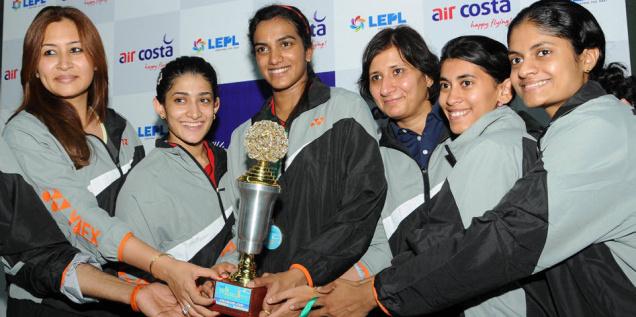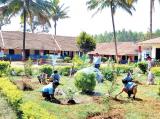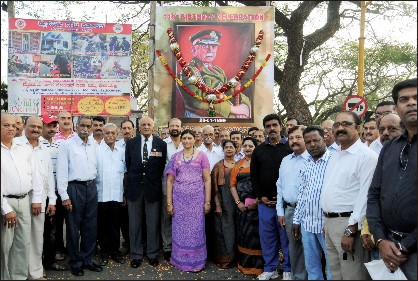Mangaluru :
Can a temperate fruit like the apple be tamed to grow in the tropics?
That it’s a distinct possibility has been shown by Mandi-based senior fruit scientist Chiranjit Parmar, with help from a few farmers in the state. Though experimentation is still at the trial stage without reaching commercial production, it has opened up new possibilities to challenge the dominance of Jammu & Kashmir and Himachal Pradesh over this fruit.
But what’s interesting is that Himachal apple saplings planted here are in a confused state! While apple trees bear fruit in five or six years in Kashmir and Himachal Pradesh, they’ve started flowering and bearing fruit within two years of planting, in Bengaluru and Somwarpet in North Kodagu.
In Dakshina Kannada, retired banker Krishna Shetty is still waiting to savour the fruits of his labour. “They’ve started flowering. I should be able to harvest apples next year,” he says. The prolonged monsoon and pest attack here have stopped them from yielding the desired results, he adds. Shetty planted 50 saplings at his farm in Hirebandady, near Uppinangady.
He said the plant can be grown in regions where the temperature ranges between 10 degree Celsius and 30 degree Celsius. “In Indonesia, growers prune leaves and get about 60 tonnes of apples per hectare. In our country, pruning is not done and the yield is limited to 6 tonnes per hectare. After three years, the yield is still limited. I need further guidance from scientists,” he said.
Calistha D’Silva from Abburkatte, Somwarpet, who planted seven trees three years ago, says one of them bore fruit within the second year, and without much care. “If I’d taken care, they may have yielded better results,” he said. “The fruits were small, but tasty. Parmar, who visited my farm, said the trees have achieved tremendous growth, which would take six years in Himachal.” This year, he’s planting eight trees in his garden.
Nagananda K from Mahalakshmi Layout, Bengaluru, has three apple trees in his terrace garden. “I’ve planted a few on my farm at Basavanahalli, Ramanagaram. The trees here have shown better results with good care, whereas at my farm, it isn’t so encouraging, probably due to lack of care,” said Nagananda. His trees also bore fruit within two years.
What started this experimentation was Parmar’s visit to Batu, Indonesia, situated almost at the Equator. This area has now acquired the reputation of an apple-producing region. After getting inputs from farmers there about this “horticultural wonder”, Parmar started thinking of the possibilities of repeating this in some parts of South India — where there is no winter season.
Shetty says the absence of winter helps growers here get two crops a year, unlike in Kashmir and Himachal Pradesh, since there’s no dormancy due to winter.
During his visit to the United Kingdom in 2010, Shetty saw apple trees in house yards. “I started thinking, why not at my home, but couldn’t get much ahead. Then I saw an article on Parmar in Adike Patrike. That started the whole process,” said Shetty.
Shetty gets his supply of plants from Himachal Pradesh, and a consignment of 2,500 saplings of five varieties reached him on Monday. “Earlier, there were takers for about 500 saplings, and the numbers are growing. Unfortunately, those who take saplings don’t give me feedback,” he said.
As of now, in Karnataka, apples are being grown on a trial basis in Dakshina Kannada, Kodagu, Tumkur, Bengaluru, Tarikere, Vijayapura and Chamarajanagar.
“The experiment has been a success. We’ve sought inputs from the University of Agricultural Sciences, horticulture department, to find out which variety is suitable for commercial cropping. But there’s been no response,” adds Shetty.
With Kodagu, a major coffee growing district, welcoming the entry of apple cultivation, success has been partial in some villages in Somwarpet taluk. Horticulture department senior assistant director Sudheendra Rao told TOI that officially, Kodagu is not an apple zone, but some growers cultivate them out of interest.
TP Sandesh, agricultural standing committee chairman of Kodagu Zilla Panchayat, got a few planted in his farm at Madapur village. As did Shashikala Raj of Masagodu village in Somwarpet. They claim the plants are flowering but the blossoms are falling without yielding fruit. Other small farmers, like Kushalappa of Kamballi village and Puttaraju of Sulimalthe, say the yield is poor.
“If the department takes interest, apples could become a good support crop in Kodagu,” the farmers say.
source: http://www.timesofindia.indiatimes.com / The Times of India / Home> City> Mangaluru / by Stanley Pinto, TNN / February 04th, 2015





